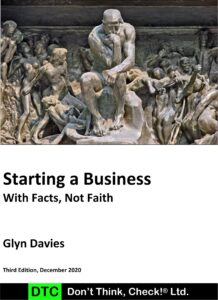
We all make decisions all the time; they range from the routine and mundane to the serious and life changing. But how often do we think about the quality of our decision-making? Sure we may reflect a little on good decisions, and we probably dwell on and torment ourselves with bad decisions, those that did not work out to our liking. But do we reflect on the processes by which we actually make those good and bad decisions? Do we do enough to learn from the process of decision-making?
The book Decision Traps by Russo and Schoemaker (1989) is a brilliant work that analyses, discusses, and provides remedies for 10 common decision traps, traps that people often make that reduces the quality of their decision making processes, their decisions, and therefore their decision outcomes.
I highly recommend this book; it is an invaluable addition to anyone’s library.
The 10 Decision Traps are:
- Plunging In – Beginning to gather information and reach conclusions without first taking a few minutes to think about the crux of the issue you’re facing or to think through how you believe decisions like this one should be made.
- Frame Blindness – Setting out to solve the wrong problem because you have created a mental framework for your decision, with little thought, that causes you to overlook the best options or lose sight of important objectives.
- Lack of Frame Control – Failing to consciously define the problem in more ways than one or being unduly influenced by the frames of others.
- Overconfidence in Your Judgment – Failing to collect key factual information because you are too sure of your assumptions and opinions.
- Short-sighted Shortcuts – Relying inappropriately on “rules of thumb” such as implicitly trusting the most readily available information or anchoring too much on convenient facts.
- Shooting From the Hip – Believing you can keep straight in your head all the information you’ve discovered, and therefore “winging it” rather than following a systematic procedure when making the final choice.
- Group Failure – Assuming that with many smart people involved, good choices will follow automatically, and therefore failing to manage the group decision-making process.
- Fooling Yourself About Feedback – Failing to interpret the evidence from past outcomes for what it really says, either because you are protecting your ego or because you are tricked by hindsight.
- Not Keeping Track – Assuming that experience will make its lessons available automatically, and therefore failing to keep systematic records to track the results of your decisions and failing to analyse these results in ways that reveal their key lessons.
- Failure to Audit Your Decision Process – Failing to create an organised approach to understanding your own decision-making, so you remain constantly exposed to all the above mistakes.
J. Edward Russo and Paul J. H. Schoemaker, Decision Traps: The Ten Barriers to Brilliant Decision Making and How to Overcome Them (New York: Simon & Schuster, 1989)



